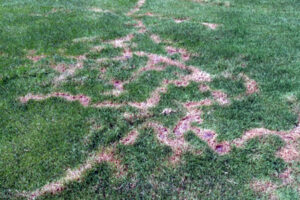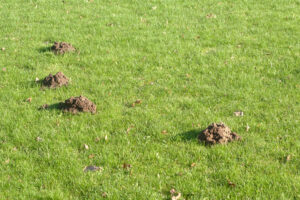If you have moles in your garden, you might be wondering whether they pose a health risk. While European moles (Talpa europaea) in the UK are not known for spreading diseases directly to humans, there are some indirect risks to consider.
Can Moles Carry or Transmit Diseases?
Unlike rodents such as rats or mice, moles do not commonly carry diseases that can be transmitted to humans. They live almost entirely underground, have little direct contact with people, and do not seek out human food sources. However, there are a few concerns to be aware of:
- Leptospirosis (Weil’s Disease) – This bacterial infection is spread through the urine of infected animals, particularly rodents. While moles themselves are not a common carrier, their burrowing can bring soil and water contaminated by other animals to the surface. If humans or pets come into contact with infected soil or water, there is a small risk of exposure.
- Parasites – Moles can host fleas, mites, and ticks, some of which could potentially carry disease. However, since moles spend most of their time underground, the risk of these parasites transferring to humans or pets is relatively low compared to surface-dwelling animals.
- Soil-Borne Bacteria and Fungi – Mole activity disturbs soil, which can bring harmful bacteria or fungi to the surface. For example, spores from certain fungi can cause infections in people with weakened immune systems if inhaled in high quantities.
Are Moles a Danger to Pets?
Moles themselves do not pose a direct threat to pets, as they do not bite or attack. However, dogs and cats that dig in mole tunnels could come into contact with soil-borne bacteria or parasites. Additionally, eating a mole (which some pets may attempt) could expose them to internal parasites.
Should You Be Concerned?
For most homeowners, moles are more of a nuisance than a health hazard. The biggest issue they cause is lawn and garden damage rather than disease transmission. However, if you are concerned about the risks or the destruction they cause, professional mole control is the best solution.
A skilled molecatcher can provide effective mole trapping, ensuring these pests are removed safely and humanely. If you need pest control for moles, taking action early can prevent further damage and potential risks to your property.




